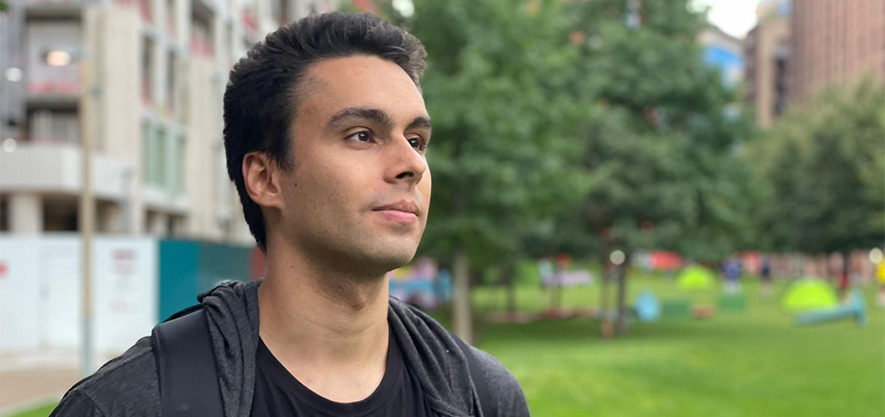
Submitted by Rachel Gardner on Thu, 15/09/2022 - 12:09
Many congratulations to machine learning PhD student Francisco Vargas, who has won $40,000 in funding to conduct a project described as 'an exciting theoretical tour-de-force'.
He is one of four students across Europe to receive a Qualcomm Innovation Fellowship Europe.
This fellowship programme recognises excellent research in the field of AI and cybersecurity, rewarding young researchers with individual funding, dedicated mentors from the Qualcomm Technologies team, and the opportunity to present their work in person to an audience of technical leaders at the company’s HQ in San Diego.
Francisco, who is supervised by Neil Lawrence, DeepMind Professor of Machine Learning here, was selected as a winner for his proposal, 'A Unifying Framework for Sampling, Inference and Transport via Schrödinger Bridges'.
Qualcomm says: "Francisco takes us on a journey through the Schrödinger Bridge problem, in which one tries to find the stochastic evolution between two probability distributions. He sets out to unify the work that has been done on this problem in the machine learning community through the lens of the Sinkhorn algorithm, relating variational inference, sampling, and optimal transport together."
The company goes on to describe this work as "an exciting theoretical tour-de-force that, when successful, will provide interesting theoretical insights into the underlying continuous nature of several discrete algorithms and might make it possible to apply algorithms from the above fields to one-another."
As a Venezuelan national and Latino this award is of great importance to me as I hope it will inspire other Venezuelans and Latinx / South American people to apply to similar awards, thus increasing the diversity within this field.
Francisco Vargas
Francisco says: "The space of diffusion generative modelling has taken off in machine learning with exciting results and many interesting design choices. I hope to develop a framework based on well-developed methodology from statistical mechanics that unifies said design choices. Our framework will compare and contrast these different alternatives from a theoretical perspective with the aim of informing future approaches. Finally, we hope these insights can help in applying these methods beyond generative modeling to science and statistical inference."
Watch the moment that Francisco Vargas was announced a winner of the Qualcomm Innovation Fellowship Europe.
Francisco adds: "As a Venezuelan national and Latino this award is of great importance to me as I hope it will inspire other Venezuelans and Latinx / South American people to apply to similar awards thus increasing the diversity within this field.
"Finally, this award will immensely accelerate my progress, as experimental work with diffusion-based models requires hardware support above the standard deep learning pipelines."
-
Adapted from a Qualcomm press release.

